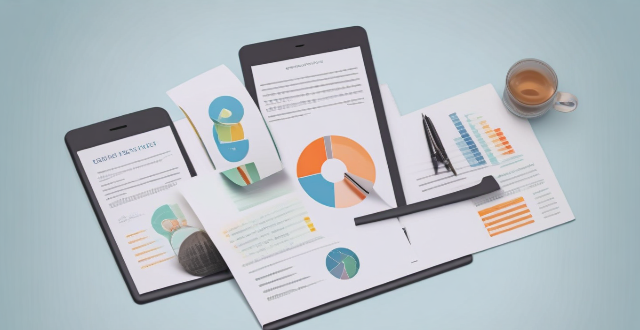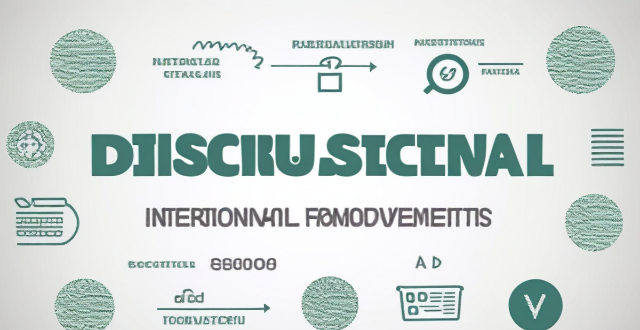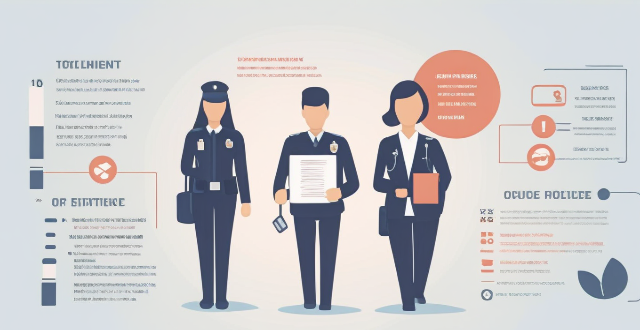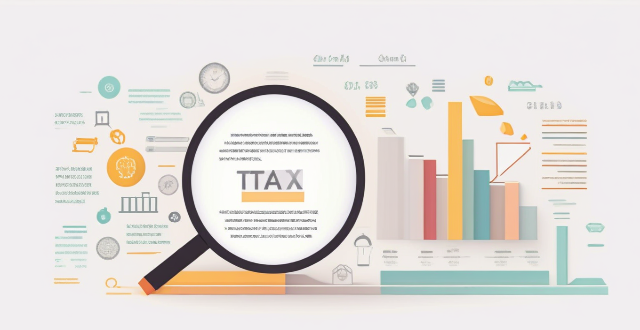Income Cash

Are there any tax implications for using credit card rewards ?
The article discusses the tax implications of using credit card rewards, which vary depending on the type of reward and how it is used. Cash back rewards are generally considered taxable income and must be reported on tax returns. Travel rewards, such as airline miles or hotel points, are not usually considered taxable unless converted to cash. Merchandise rewards are typically not taxable until sold or exchanged for cash, but if the fair market value exceeds the purchase price, the difference may be considered taxable income. Charitable donations made with rewards may be deductible from taxable income, but it is important to consult with a tax professional to ensure compliance with tax laws.

What measures can be taken to reduce income inequality in low-income countries ?
The text discusses measures to reduce income inequality in low-income countries. It covers topics such as education and training, economic policies, labor market interventions, social safety nets, land reforms, governance and anti-corruption measures, and international cooperation. The measures include improving access to quality education, implementing progressive tax systems, creating minimum wage laws, developing effective social assistance programs, implementing land reform policies, strengthening institutional capacity to combat corruption, and seeking foreign direct investment that aligns with sustainable development goals.

Is it safe to carry large amounts of cash when traveling ?
When it comes to traveling, there are a variety of considerations that must be taken into account. One such consideration is whether or not it is safe to carry large amounts of cash while on the go. In this article, we will explore the potential risks and benefits associated with carrying large sums of money when traveling. One of the most significant risks associated with carrying large amounts of cash is the possibility of theft or robbery. This risk can be particularly high in areas where crime rates are high or in countries where pickpocketing and other forms of theft are common. Another risk associated with carrying large amounts of cash is the possibility of loss or disaster. For example, if your wallet or purse is lost or stolen, you may lose all of the cash that you were carrying with you. Similarly, if you are involved in an accident or natural disaster, your cash could be damaged or destroyed. Carrying large amounts of cash can also be risky due to fluctuating currency exchange rates. If you are traveling to a country with a different currency than your own, you may find that the value of your cash decreases over time as exchange rates change. Despite these risks, there are also some potential benefits to carrying large amounts of cash when traveling. These include convenience, no fees or charges, and accessibility in situations where other forms of payment may not be readily available. However, there are also several alternatives that travelers can consider, such as credit cards, debit cards, prepaid cards, and mobile payment apps like Apple Pay and Google Wallet. In conclusion, carrying large amounts of cash when traveling can be both risky and beneficial depending on various factors. While it may offer convenience and accessibility in certain situations, it also poses significant risks such as theft, loss, and fluctuating currency exchange rates. As such, travelers should carefully consider their options and weigh the potential benefits against the potential risks before deciding whether or not to carry large amounts of cash while on the go.

What happens if I don't declare all the cash I'm carrying when entering a country ?
The text provides a comprehensive overview of the potential penalties and inconveniences that may arise from not declaring cash at customs when entering a country. These include fines, seizure of funds, travel restrictions, administrative inconvenience, and loss of face. To avoid these consequences, it is recommended to be honest about the amount of cash carried, keep receipts, research regulations, and consult professionals if necessary.

How is individual income tax calculated ?
Individual income tax calculation involves determining gross income, subtracting allowable deductions, calculating adjusted gross income (AGI), identifying tax credits, calculating taxable income, applying tax rates, and considering withholding and estimated tax payments. The process varies slightly by jurisdiction but generally follows these key steps. It is recommended to consult with a tax professional or use reliable tax preparation software to ensure accuracy and maximize any applicable deductions and credits.

What is the ideal percentage of income to save for wealth growth ?
This text discusses the importance of saving a portion of one's income for wealth growth and explores factors such as personal financial situation, financial goals, lifestyle choices, and income level that determine the ideal savings rate. It also provides general guidelines for saving, including starting small, increasing gradually, and aiming for at least 20% of income.

How does the tax bracket affect my personal income tax calculation ?
Tax brackets define the range of income subject to specific tax rates, embodying the principle of progressive taxation. Your income level determines the applicable tax bracket(s), which influences how much personal income tax you must pay. The marginal tax rate represents the highest rate on additional income, while the effective tax rate is the average rate across your total income. Being aware of your tax bracket can guide financial planning and strategies to possibly lower your taxable income.

What happens if I make a mistake in my personal income tax calculation ?
Mistakes in personal income tax calculation can lead to underpayment or overpayment of taxes, errors in reporting income or deductions, and potential penalties, interest charges, or even criminal charges. To avoid these consequences, it's essential to stay organized, use tax software or consult a professional, review your return carefully, and file on time.

How does self-employment affect my personal income tax calculation ?
Self-employment affects personal income tax calculation by requiring net income reporting, quarterly estimated tax payments, utilizing deductions and credits, filing specialized forms, and paying self-employment tax. Staying organized and informed about tax laws is crucial for effective tax management.

How often should I review and adjust my budget ?
Regular budget reviews are essential for maintaining financial health, helping to align spending with evolving goals, adjust for unexpected expenses, and account for inflation. Conduct monthly, quarterly, and annual reviews to monitor cash flow, analyze spending patterns, and make necessary adjustments. Focus on income vs. expenses, debt management, savings goals, emergency funds, subscription services, and bill negotiation. After each review, adjust spending, increase savings, revisit goals, improve cash flow, and seek professional advice as needed.

What are the deductions and exemptions in personal income tax calculation ?
Deductions and exemptions in personal income tax calculation include standard deduction, itemized deductions, tax credits, and exemptions. Standard deduction is a fixed amount subtracted from an individual's taxable income, while itemized deductions are for specific expenses not covered by the standard deduction. Tax credits directly reduce the amount of taxes owed, and exemptions are amounts subtracted from an individual's taxable income to reduce their tax liability. Understanding these deductions and exemptions can help taxpayers minimize their tax liability and keep more of their hard-earned income.

How can I minimize my personal income tax liability ?
The article discusses strategies for minimizing personal income tax liability, including maximizing retirement contributions, taking advantage of tax credits and deductions, considering tax-efficient investment strategies, deferring income when possible, and managing withholdings. It emphasizes the importance of careful planning and consulting with professionals to reduce one's tax burden.

Are there any online tools available for calculating personal income tax ?
The text provides a summary of online tools available for calculating personal income tax. It mentions TurboTax, H&R Block, IRS Free File, and TaxAct as popular options. These tools help individuals determine their tax liability based on their income, deductions, and other factors. However, it is important to consult with a qualified tax professional if there are any questions or concerns about the tax situation.

What is the difference between federal and state income tax calculations ?
The article discusses the process of calculating federal and state income taxes in the United States. Federal income tax calculations are based on the Internal Revenue Service (IRS) tax code, while state income tax calculations vary by state due to different tax laws and regulations. Both federal and state taxes involve determining taxable income and applying tax rates, but specific details such as rates, deductions, and exemptions can vary significantly between the two levels of government.

How can I maximize my retirement income from pension plans ?
The article provides strategies for maximizing retirement income from pension plans, including understanding the types of plans, optimizing contributions, investing wisely, taking advantage of tax benefits, and planning for retirement expenses. It emphasizes the importance of starting early, diversifying investments, and regularly monitoring and adjusting them. The article also highlights the benefits of tax-deferred growth and potential tax-free withdrawals. By following these strategies, individuals can help ensure a comfortable retirement with a steady stream of income from their pension plans.

How often do I need to file my personal income tax return ?
Filing personal income tax returns is a crucial financial responsibility for individuals. The frequency of filing depends on various factors such as your residency, employment status, and income level. In this article, we will discuss the different scenarios that determine how often you need to file your personal income tax return. Personal income tax returns are filed annually in most countries. However, there are certain situations where you may need to file more frequently or less frequently. Your residency status plays a significant role in determining how often you need to file your personal income tax return. If you are a resident of a country, you are required to file your tax return annually, regardless of your employment status or income level. If you are employed and receive a regular salary, your employer is responsible for withholding taxes from your paycheck and remitting them to the government. In this case, you are still required to file your personal income tax return annually to report your total income and ensure that the correct amount of taxes has been withheld. The frequency of filing your personal income tax return also depends on your income level. If you have a low income and do not exceed the minimum threshold set by the government, you may not be required to file a tax return. However, it is always advisable to check with the tax authorities to confirm if you are exempt from filing. Self-employed individuals who earn an income from their business activities are required to file their personal income tax return annually. This is because self-employed individuals are responsible for paying their own taxes and reporting their income to the government. Freelance workers who earn an income from providing services to clients are also required to file their personal income tax return annually. This ensures that they report their earnings accurately and pay the appropriate taxes. If you own rental properties and earn rental income, you are required to file your personal income tax return annually. This is because rental income is considered part of your overall income and must be reported to the government. Retirees who receive pensions or other forms of retirement income are generally required to file their personal income tax return annually. However, if their income falls below the minimum threshold set by the government, they may be exempt from filing. In conclusion, the frequency of filing your personal income tax return depends on various factors such as your residency status, employment status, and income level. It is important to understand these factors and consult with the tax authorities to ensure that you comply with the requirements for filing your tax return. By doing so, you can avoid penalties and ensure that you pay the correct amount of taxes.

What is the impact of a carbon tax on low-income households ?
The text discusses the impact of a carbon tax on low-income households, emphasizing that such a tax can significantly and negatively affect these households due to increased costs and its regressive nature. However, potential long-term benefits are also highlighted, including revenue generation for energy-efficient programs and overall cost reduction as carbon-based fuel use decreases. To mitigate negative impacts, strategies like revenue recycling, progressive tax design, and energy efficiency programs are suggested. The text concludes that with careful policy design and implementation, a carbon tax can contribute to a sustainable future while benefiting all income levels over time.

How do low-income countries tackle poverty and improve the living standards of their population ?
Tackling poverty in low-income countries requires a multifaceted approach that addresses various aspects of development. Some key strategies include investing in education, promoting economic growth through foreign investment and local industry development, addressing healthcare needs by providing access to primary care services and training healthcare workers, and empowering women and girls through education, gender equality initiatives, and support for women-led businesses. By adopting these approaches, low-income countries can work towards improving the living standards of their populations and breaking the cycle of poverty.

What role do international aid and foreign investments play in the economic growth of low-income countries ?
The text discusses the crucial role of international aid and foreign investments in promoting economic growth in low-income countries. It highlights how these two factors contribute to development by providing financial resources, technical expertise, and market access. The text also emphasizes the need for effective and transparent use of these resources to maximize their impact on sustainable economic growth.

What policies can low-income countries implement to promote gender equality and women's empowerment ?
This article discusses various policies that low-income countries can implement to promote gender equality and women's empowerment. It highlights the importance of education, healthcare, economic development, legal protections, and cultural norms in achieving these goals. The article suggests policies such as equal access to quality education, vocational training programs, reproductive health services, microfinance programs, non-discriminatory hiring practices, protection from violence, property rights, positive media representation, and community mobilization. By implementing these policies, low-income countries can create a more inclusive and equitable world for all genders.

How can companies use credit management to improve cash flow ?
Credit management is crucial for companies extending credit to customers. Strategies include implementing a credit policy, conducting credit checks, monitoring receivables, offering multiple payment options, incentivizing timely payments, using automated tools, and periodically reviewing and adjusting processes. These steps can help reduce bad debts and improve cash flow.

How long does it take to achieve financial freedom ?
Achieving financial freedom is a goal many people strive for, but the time it takes varies based on individual circumstances, habits, and market conditions. Factors influencing the journey include initial financial standing, income level and consistency, lifestyle and expenses, investment choices and returns, and economic and market conditions. Strategies to potentially shorten the timeline include increasing income, reducing expenses, investing wisely, managing debt, and planning for retirement. The path to financial freedom is unique for each person, but understanding the factors and using effective strategies can help anyone work towards achieving financial independence more efficiently.

How can we ensure that climate policies are fair and just for all people, regardless of income or social status ?
Climate change is a global issue that affects everyone, regardless of income or social status. However, the impacts of climate change often disproportionately affect low-income and marginalized communities. Therefore, it is essential to ensure that climate policies are fair and just for all people. Here are some ways to achieve this: 1. Prioritize vulnerable communities by identifying them, developing targeted policies, and ensuring equitable distribution of benefits. 2. Promote participatory decision-making by engaging stakeholders, providing access to information, and facilitating public participation. 3. Consider economic impacts by assessing implications, implementing transitional support, and promoting green jobs. 4. Address environmental justice by addressing historical inequities, promoting diversity and inclusion, and monitoring compliance with environmental laws. 5. Foster collaboration between government agencies by coordinating efforts, sharing resources, and evaluating progress regularly.

What are the steps to achieving financial freedom ?
Achieving financial freedom is a multi-step process that involves defining personal goals, creating a budget, paying off debt, building an emergency fund, investing wisely, increasing income streams, living below one's means, and continuously educating oneself about personal finance strategies. This journey requires patience, persistence, and a commitment to long-term growth rather than short-term gains. By following these steps, individuals can work towards achieving the lifestyle they desire without relying on traditional forms of income such as a job.

What are the tax benefits of investing in certain financial products ?
This article discusses the tax benefits of investing in certain financial products such as retirement accounts, stocks, bonds, and real estate investments. It explains how these investments can help reduce taxable income and save money on taxes, while also growing wealth over time. The article provides an overview of the different types of retirement accounts and their tax benefits, as well as the advantages of investing in stocks and bonds, including capital gains taxes, dividend income, and interest income. It also covers the tax benefits of real estate investments, such as depreciation, tax credits, and rental income deductions. The article emphasizes the importance of understanding the tax implications of each investment option and working with a qualified financial advisor to develop a strategy that meets individual goals and minimizes tax liability.

What is the difference between term life insurance and whole life insurance ?
Difference between term life insurance and whole life insurance: - Term life insurance is temporary coverage, no cash value, renewable, and affordable. - Whole life insurance is permanent coverage, accumulates cash value, has level premiums, and is more expensive.

What is the protocol for tipping staff on a cruise ship ?
Tipping protocol on cruise ships includes understanding who to tip, how much to give, and when to do so. Key points include: 1. **Who to Tip**: Stateroom attendants, waitstaff, bar staff, and other service personnel like activities staff and tour guides. 2. **How Much to Tip**: Standard daily gratuity is often automatically added to your bill ($12-15 per person per day), but additional cash tips are encouraged for exceptional service. 3. **When to Tip**: Typically at the end of the cruise when settling your account, or periodically throughout longer voyages. 4. **Cash or Credit Card**: Cash is preferred as it benefits crew members directly; however, some lines allow adding tips to credit card bills. 5. **Alternatives to Cash Tipping**: Prepaid gratuities or gratuity gift cards for those who prefer not to carry cash. Some all-inclusive cruises include gratuities in their price. By following these guidelines, passengers can ensure they are rewarding hardworking crew members appropriately while maintaining proper etiquette.

What are the best credit card rewards programs ?
The article lists several credit card reward programs that offer various benefits such as cashback, points, and miles. The Chase Sapphire Preferred Card offers 5x points on travel purchases and a sign-up bonus of 80,000 points. The American Express Gold Card provides 4x points at restaurants and U.S. supermarkets with a 60,000 points sign-up bonus. The Citi Double Cash Card gives 2% cash back on all purchases with no annual fee. The Capital One Venture Rewards Credit Card earns unlimited 2x miles per dollar on every purchase with a one-time bonus of 75,000 miles. Finally, the Blue Cash Preferred Card from American Express offers 6% cash back at U.S. supermarkets and a $300 statement credit after spending $3,000 in purchases within the first 6 months.

What are the benefits of effective credit management for businesses ?
Effective credit management is crucial for businesses to maintain a healthy cash flow, reduce financial risks, and ensure long-term success. Key benefits include improved cash flow through reduced payment delays, prevention of bad debts, and better negotiation power; increased financial stability with lower interest expenses, improved access to financing, and enhanced investor confidence; greater competitive advantage through stronger customer relationships, higher market share, and improved reputation; and risk mitigation via reduced fraud risk, compliance with regulations, and risk assessment.

What role does budgeting play in financial planning ?
Budgeting is crucial for financial planning, helpingBudgeting is crucial for financial planning, helping-term goals by tracking income helping individuals and businesses achieve long-term goals by tracking income, expenses, and savings. It aids in setting goals, tracking expenses to cut back on spending, allocating resources effectively, managing cash flow, and reducing financial stress. By creating a realistic budget and sticking to it, individuals and businesses can maintain a healthy financial status and achieve their short-term and long-term objectives.